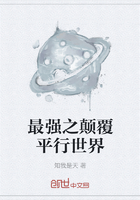Burnamy had found the Posthof for them, as he had found most of the other agreeable things in Carlsbad, which he brought to their knowledge one by one, with such forethought that March said he hoped he should be cared for in his declining years as an editor rather than as a father; there was no tenderness like a young contributor's.
Many people from the hotels on the hill found at Pupp's just the time and space between their last cup of water and their first cup of coffee which are prescribed at Carlsbad; but the Marches were aware somehow from the beginning that Pupp's had not the hold upon the world at breakfast which it had at the mid-day dinner, or at supper on the evenings when the concert was there. Still it was amusing, and they were patient of Burnamy's delay till he could get a morning off from Stoller and go with them to the Posthof. He met Mrs. March in the reading-room, where March was to join them on his way from the springs with his bag of bread. The earlier usage of buying the delicate pink slices of Westphalia ham, which form the chief motive of a Carlsbad breakfast, at a certain shop in the town, and carrying them to the caf?with you, is no longer of such binding force as the custom of getting your bread at the Swiss bakery.
You choose it yourself at the counter, which begins to be crowded by half past seven, and when you have collected the prescribed loaves into the basket of metallic filigree given you by one of the baker's maids, she puts it into a tissue-paper bag of a gay red color, and you join the other invalids streaming away from the bakery, their paper bags ****** a festive rustling as they go.
Two roads lead out of the town into the lovely meadow-lands, a good mile up the brawling Tepl, before they join on the right side of the torrent, where the Posthof lurks nestled under trees whose boughs let the sun and rain impartially through upon its army of little tables. By this time the slow omnibus plying between Carlsbad and some villages in the valley beyond has crossed from the left bank to the right, and keeps on past half a dozen other cafes, where patients whose prescriptions marshal them beyond the Posthof drop off by the dozens and scores.
The road on the left bank of the Tepl is wild and overhung at points with wooded steeps, when it leaves the town; but on the right it is bordered with shops and restaurants a great part of its length. In leafy nooks between these, uphill walks begin their climb of the mountains, from the foot of votive shrines set round with tablets commemorating in German, French, Russian, Hebrew, Magyar and Czech, the cure of high-well-borns of all those races and languages. Booths glittering with the lapidary's work in the cheaper gems, or full of the ingenious figures of the toy-makers, alternate with the shrines and the cafes on the way to the Posthof, and with their shoulders against the overhanging cliff, spread for the passing crowd a lure of Viennese jewelry in garnets, opals, amethysts, and the like, and of such Bohemian playthings as carrot-eating rabbits, worsted-working cats, dancing-bears, and peacocks that strut about the feet of the passers and expand their iridescent tails in mimic pride.
Burnamy got his charges with difficulty by the shrines in which they felt the far-reflected charm of the crucifixes of the white-hot Italian highways of their early travel, and by the toyshops where they had a mechanical, out-dated impulse to get something for the children, ending in a pang for the fact that they were children no longer. He waited politely while Mrs. March made up her mind that she would not buy any laces of the motherly old women who showed them under pent-roofs on way-side tables; and he waited patiently at the gate of the flower-gardens beyond the shops where March bought lavishly of sweetpease from the businesslike flower-woman, and feigned a grateful joy in her because she knew no English, and gave him a chance of speaking his German.
"You'll find," he said, as they crossed the road again, "that it's well to trifle a good deal; it makes the time pass. I should still be lagging along in my thirties if it hadn't been for fooling, and here I am well on in my fifties, and Mrs. March is younger than ever."
They were at the gate of the garden and grounds of the caf?at last, and a turn of the path brought them to the prospect of its tables, under the trees, between the two long glazed galleries where the breakfasters take refuge at other tables when it rains; it rains nearly always, and the trunks of the trees are as green with damp as if painted; but that morning the sun was shining. At the verge of the open space a group of pretty serving-maids, each with her name on a silver band pinned upon her breast, met them and bade them a 'Guten Morgen' of almost cheerful note, but gave way, to an eager little smiling blonde, who came pushing down the path at sight of Burnamy, and claimed him for her own.
"Ah, Lili! We want an extra good table, this morning. These are some American Excellencies, and you must do your best for them."
"Oh, yes," the girl answered in English, after a radiant salutation of the Marches; " I get you one.
"You are a little more formerly, to-day, and I didn't had one already."
She ran among the tables along the edge of the western edge of the gallery, and was far beyond hearing his protest that he was not earlier than usual when she beckoned him to the table she had found. She had crowded it in between two belonging to other girls, and by the time her breakfasters came up she was ready for their order, with the pouting pretence that the girls always tried to rob her of the best places.
Burnamy explained proudly, when she went, that none of the other girls ever got an advantage of her; she had more custom than any three of them, and she had hired a man to help her carry her orders. The girls were all from the neighboring villages, he said, and they lived at home in the winter on their summer tips; their wages were nothing, or less, for sometimes they paid for their places.














